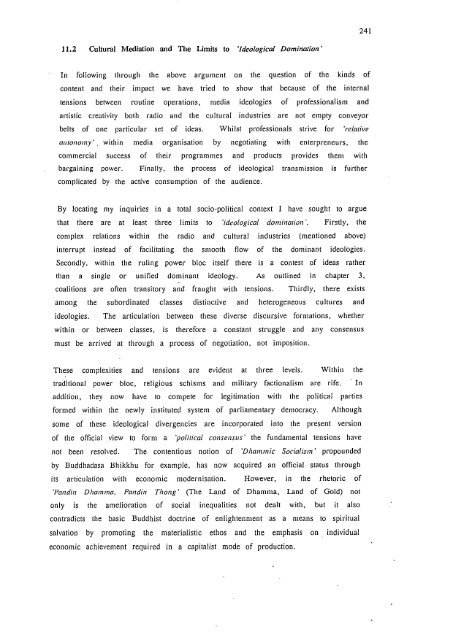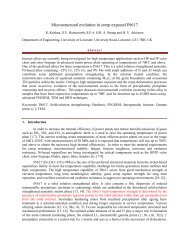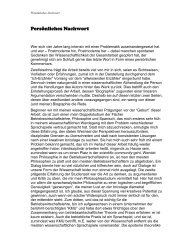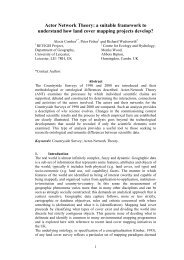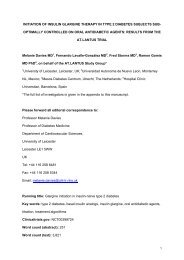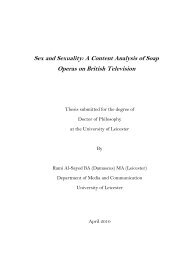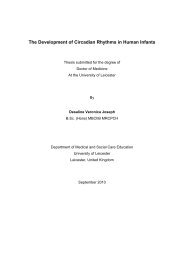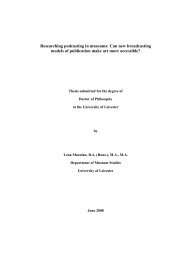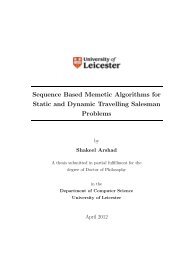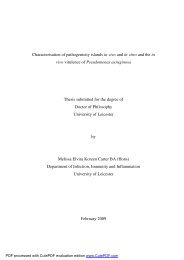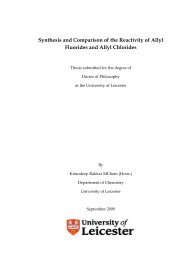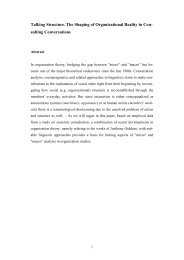iieiiei1eWrkers - Leicester Research Archive - University of Leicester
iieiiei1eWrkers - Leicester Research Archive - University of Leicester
iieiiei1eWrkers - Leicester Research Archive - University of Leicester
Create successful ePaper yourself
Turn your PDF publications into a flip-book with our unique Google optimized e-Paper software.
11.2 Cultural Mediation and The Limits to 'Ideological Domination'<br />
In following through the above argument on the question <strong>of</strong> the kinds <strong>of</strong><br />
content and their impact we have tried to show that because <strong>of</strong> the internal<br />
tensions betwccn routine operations, media ideologies <strong>of</strong> pr<strong>of</strong>essionalism and<br />
artistic creativity both radio and the cultural industries are not empty conveyor<br />
belts <strong>of</strong> one particular set <strong>of</strong> ideas. Whilst pr<strong>of</strong>essionals strive for 'relative<br />
autononiy' within media organisation by negotiating with enterpreneurs, the<br />
commercial success <strong>of</strong> their programmes and products provides them with<br />
bargaining power. Finally, the process <strong>of</strong> ideological transmission is further<br />
complicated by the active consumption <strong>of</strong> the audience.<br />
By locating my inquiries in a total socio-political context I have sought to argue<br />
that there are at least three limits to 'ideological domination '. Firstly, the<br />
complex relations within the radio and cultural industries (mentioned above)<br />
interrupt instead <strong>of</strong> facilitating the smooth flow <strong>of</strong> the dominant ideologies.<br />
Secondly, within the ruling power bloc itself there is a contest <strong>of</strong> ideas rather<br />
than a single or unified dominant ideology. As outlined in chapter 3,<br />
coalitions are <strong>of</strong>ten transitory and fraught with tensions. Thirdly, there exists<br />
among the subordinated classes distinctive and heterogeneous cultures and<br />
ideologies. The articulation between these diverse discursive formations, whether<br />
within or between classes, is therefore a constant struggle and any consensus<br />
must be arrived at through a process <strong>of</strong> negotiation, not imposition.<br />
These complexities and tensions are evident at three levels. Within the<br />
traditional power bloc, religious schisms and military factionalism are rife. In<br />
addition, they now have to compete for legitimation with the political parties<br />
formed within the newly instituted system <strong>of</strong> parliamentary democracy. Although<br />
some <strong>of</strong> these ideological divergencies are incorporated into the present version<br />
<strong>of</strong> the <strong>of</strong>ficial view to form a 'political consensus' the fundamental tensions have<br />
not been resolved. The contentious notion <strong>of</strong> 'Dhammic Socialism' propounded<br />
by Buddhadasa Bhikkhu for example, has now acquired an <strong>of</strong>ficial status through<br />
its articulation with economic modernisation. However, in the rhetoric <strong>of</strong><br />
'Pandin D1,amma, Pond/n Thong' (The Land <strong>of</strong> Dhamma, Land <strong>of</strong> Gold) not<br />
only is the amelioration <strong>of</strong> social inequalities not dealt with, but it also<br />
contradicts the basic Buddhist doctrine <strong>of</strong> enlightenment as a means to spiritual<br />
salvation by promoting the materialistic ethos and the emphasis on individual<br />
economic achievement required in a capitalist mode <strong>of</strong> production.<br />
241


